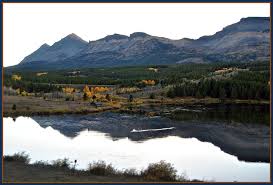And the whole earth was of one language, and of one speech.
And it came to pass, as they journeyed from the east, that they found a plain in the land of Shinar; and they dwelt there.
And they said one to another, Go to, let us make brick, and burn them thoroughly. And they had brick for stone, and slime had they for morter.
And they said,
Go to, let us build us a city and a tower, whose top may reach unto heaven; and let us make us a name, lest we be scattered abroad upon the face of the whole earth.
And the Lord came down to see the city and the tower, which the children of men builded.
And the Lord said, Behold, the people is one, and they have all one language; and this they begin to do: and now nothing will be restrained from them, which they have imagined to do.
Go to, let us go down, and there confound their language, that they may not understand one another’s speech.
So the Lord scattered them abroad from thence upon the face of all the earth: and they left off to build the city.
Genesis 11: 1-8 (KJV)
There are many things that we can learn from this passage. Of course, the main theme is that God did not want mankind to fail to rely upon Providence, and they had begun to do that very thing. Man looked to himself, hoping to “make a name.” This implies that they hoped to become “gods” amongst themselves, without their relationship with their Creator.
But there are other things to garner, and we would be wise to consider them. For example, notice man’s words: “let us make a name, lest we be scattered.” They had gathered into a city, rather than following the biblical mandate to “fill the earth.” So how does God counter their hubris? “The Lord scattered them abroad…upon the face of all the eath: and they left off to build the city.”
 God wanted man to spread out. Looking at the results of urban living, can we blame him? According to the FBI, in the United States the 2011 rate of violent crime known to law enforcement within metropolitan areas was 410.3 per 100,000 persons. The rate of violent crime per 100,000 persons in cities outside metropolitan areas was 382.1, and for nonmetropolitan counties it was 186.1. Urban areas ran between 382 – 410 crimes per 100,000 people, while rural areas had les than half of that. It is safer to live in a rural area.
God wanted man to spread out. Looking at the results of urban living, can we blame him? According to the FBI, in the United States the 2011 rate of violent crime known to law enforcement within metropolitan areas was 410.3 per 100,000 persons. The rate of violent crime per 100,000 persons in cities outside metropolitan areas was 382.1, and for nonmetropolitan counties it was 186.1. Urban areas ran between 382 – 410 crimes per 100,000 people, while rural areas had les than half of that. It is safer to live in a rural area.
Crime is not the only issue. Social cohesion also matters. “With a considerably lower population scattered across a broad region, rural areas tend to have closer communities in which everyone knows one another.” There is much less social fear in rural areas, since one’s neighbors are well known. This has many implications. For example, everyone knows everyone else’s strengths and weaknesses. We know who can fix broken equipment. We know who to call for help when problems arise. We know who can provide needed care. In a city, we look to Yelp for reviews.
Rural life provides for a more enjoyable experience. There is less stress, psychological problems, and danger from unknown people or circumstances. The cost of living is lower. There is more nature. Face it, there is a reason God placed Adam in a garden, not a city.
So what do we learn? We typically have three choices for living environments: city, suburbs, country. Whether we consider crime, living standard, or social cohesion, the clear winner is a rural lifestyle. If you want to set yourself up for a successful transition into a Man of the West, then look to the country. You will be glad you did.









I wish it were that easy. Almost without exception the people around me in the city wish to move to the country. It is very difficult to get the money necessary to do that with land prices so expensive.
I have a plan and am working towards it, but many people are not as well off (some lack the discipline as well).
Land in the country is much cheaper than in the city. Sure, if you are trying to buy hundreds of acres, it is expensive. But you can get 5 acres in the country for what a quarter of an acre costs in the city.
You must be in a really good area, that’s good to hear.
Where I live even a manufactured home goes for close to 100k on a couple acres in the country.
In the city you can get an actual house for 50k, not fancy but definitely livable.
I don’t like it, I’m not advocating city life.
Maybe I need to move to your area.
There is a downside to country living and it is the isolation and lack of cohesive culture. Since everyone is their own private slice of humanity, there is a constant drive to resist any sort of rules or governance. Sounds noble except, and I speak only from my own experience and upbringing, religious order and expectations are constantly rebelled against in the name of autonomy. This results in a widespread destruction of family and sexual morality. If there is one place where women rule home and church, it is the country. Country living is not quite the utopia that city dwellers make it out to be.
I have no idea what you are talking about. I am not a city dweller. Out here in the country, men are men and women are women. Culture is much more cohesive out here than in the city (and yes, I have lived there, too).
By cultural cohesion, do you mean pissing on people’s door steps?
When sane people say “the country”, unlike you they do not mean “the single mother and associated convicts trailer park”.
I thoroughly disagree with you on this one. My hubby and I spent almost 16 years on acreage and it was some of the most enjoyable years of my life. I did not rule the roost. My husband was still in charge. It is the individual woman who is the problem, not the rural/country living.
I have always hated big cities. I live on the outskirts of a smaller town right now with my hubby, and we really like it. Big city living? No way.
As to culture, the area I reside in has no problems attracting culture. We also have a very fine selection of great churches to choose from.
Let me be clear, I’m not saying city living is better or worse, only that country living is not utopia. Country living has its high-crime slums just like the city. It depends on what part of the country side you live in. That said, I agree that a view of trees in the morning beats a concrete jungle.
The problem is that what you’re saying is (a) flat wrong, or (b) self-contradicting.
First, the notion that:
“There is a downside to country living and it is the isolation and lack of cohesive culture”
is flatly contradicted by the evidence. Culture is more cohesive, and religious adherence more common, in virtually any rural or semi-rural area than it is in any urban or semi-urban area. This is not a “take my word for it” observation. This is easily checked against polling and sampling data.
Secondly,
“Country living has its high-crime slums just like the city.”
is a non-sequitur. Yes, of course there are rural areas with higher relative crime rates. Those crime rates are still lower than every major metropolitan area, and lower than most minor urban areas as well. Even ultra-safe (relatively) urban areas are more dangerous than all but the worst trailer parks.
The argument that “country living is not a utopia” is nothing more than the destruction of a straw-man.
Fair enough. However, just moving to the country is not a guaranteed escape from crime and threats. I will leave it at that.
No one says it is an escape from all bad things. Note the original article. I clearly point out that the crime rates, etc. are LOWER in the country. Not that they are non-existent.
I’ve lived on an acreage 25 miles out of town for 15 years. It’s a little too far out, but I love it. And yes, I pay more for utilities than a city dweller.
But, I can have a large garden, I can cut firewood on my own property, I can have chickens and let them roam free. I could raise my own pork, or my own beef. With enough time and freezer space I could raise most of my own food supply.
I can hunt on my own land.
Now that does sound like work, and it is. But there’s good in that too.
Our rural land was about 2-3 miles out of town. Just far enough to be out of the town, but close enough to enjoy entertainment or run errands. What I miss is the wildlife that used to cross our property. We had deer with their babies, cougars, mountain lions, foxes, rabbits, even a peacock camped out for about 3 months on our place. The variety of birds was extraordinary and I loved watching them. That exposure to nature is what I really miss.
You know the passage in the NT where Jesus said if the people didn’t praise him the rocks and plants would? Well I never understood that until our first winter at the old place when we had snow. Snow is God’s muffler, and the silence is just deafening. Compare that to a walk on the property, and you can “hear” nature. It is like you are indeed listening to the Earth praising God. But when several inches of snow falls, the silence is so unbelievable.
Sounds like Heaven on Earth, Susan.
Yes. That is best. When I was looking for a place, the ones within 10 miles of town were priced about double.
I’ve lived in the country and the city, and mostly agree with the author. I would say, however, that older cities can provide genuine community. Also, many problems associated with cities (drugs, etc.) are migrating out to the country. There are no sin-free zones.
In a foreign city where I lived, neighbors looked out for each other, the local butcher and greengrocer knew us by name, and the old buildings had acquired a certain beauty. The drunkards, junkies, and bums did subtract a bit from the charm.
Bottom line: the country is better, but only if you make it so. Go to church, teach your sons to hunt and fish, be a good neighbor.